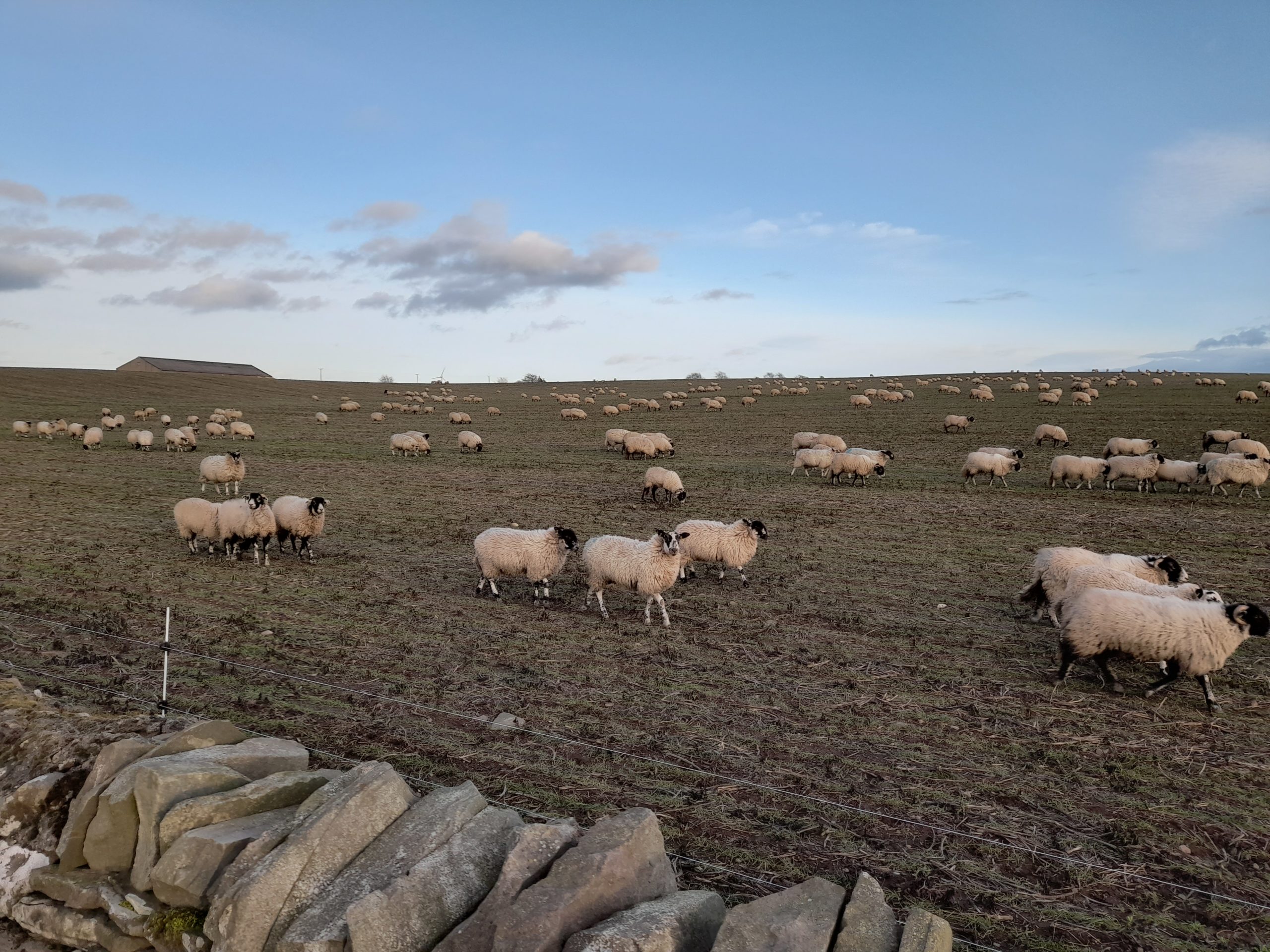Over 100 farmers from the Borders to Aberdeenshire attended a ‘show and tell’ event on a farm in Angus, to find out more about practically integrating regenerative practices into their own farming businesses.
The Soil Regenerative Open Day was hosted by potato farmer, Hugh Black, at Backboath Farm near Letham, who belongs to a group of five farmers supporting the Farming for A Better Climate group (FFBC), delivered by SAC Consulting (as part of SRUC). Together, they have been trialling regenerative measures over the last four years and shared with attendees their experiences of improving soil and efficiencies through changed practices.
Zach Reilly, of SAC Consulting and coordinator of FFBC’s Soil Regenerative Agriculture Group, said:
“The concept of ‘regenerative’ can seem too far out for some farmers and is often misguidedly associated with extreme change, so they don’t do anything. What was encouraging and clear from both the numbers and the conversations throughout the day at Backboath was that even those that consider themselves ‘conventional’ farmers are now looking at how they could introduce some soil enhancing practices into what they do. They could see that it doesn’t have to be all or nothing, any system can improve with small tweaks.”
Zach briefly introduced the basic principles of regenerative farming before visitors were invited to circulate around the four stations set up on the farm, illustrating the practical results of the activities undertaken by the five farmers in the Soil Regenerative Agriculture Group. With four groups of 25 moving around each, there was plenty of opportunity for questions and more lengthy discussion on the merits and pitfalls of each aspect, which included introducing livestock into the rotation and controlling weeds through a robust rotation when you move away from inversion tillage.
SAC consultant David Ross and FFBC farmer Douglas Ruxton, who farms a 121ha arable unit at Moss-side of Esslie near Fettercairn, demonstrated how water infiltrates soil before and after introducing conservation practices by pouring water down a four-inch pipe to see how improved soil can cope with the more extreme rainfall Scotland is experiencing.
On the benefits of bringing livestock into the rotation, SAC Consultant Kirsten Williams explained with mixed farmer Ben Baron, that this can be from as little as introducing manure, to grazing sheep on cover crops and cereals. Concerns over fencing, labour and lack of livestock knowledge were discussed, with suggestions made for moveable electric fencing systems and collaborating with neighbouring farmers for mutual gain.
At Backboath, grazing sheep has played a significant role in improving soil structure. Another interesting change has been Hugh’s adaptation of his subsoiler to establish winter crops without the plough, as he explains:
“We looked at buying new machinery for this but realised what we needed was basically a grubber with coulters on the back, so we made it ourselves. Our work rates have improved, we can establish crops earlier and get more in the ground in the winter months, using sheep to manage excess growth. It fits with the rotation as well as reducing fixed costs.”
“A huge thanks goes to all five farmers for being so open with the good and the bad, and especially to Hugh for opening up his farm to so many,” added Zach. “It’s not always easy to be at the scrutiny of peers but there is much to be learned from the experiences of these five farmers, and this day was an excellent example of how regenerative practices are being more widely considered and adopted by the industry. It is great to see this gaining real momentum.”

